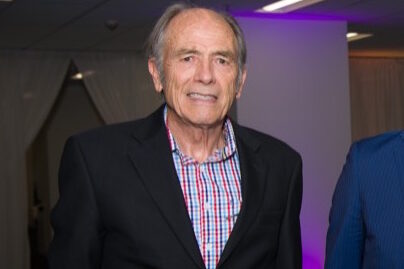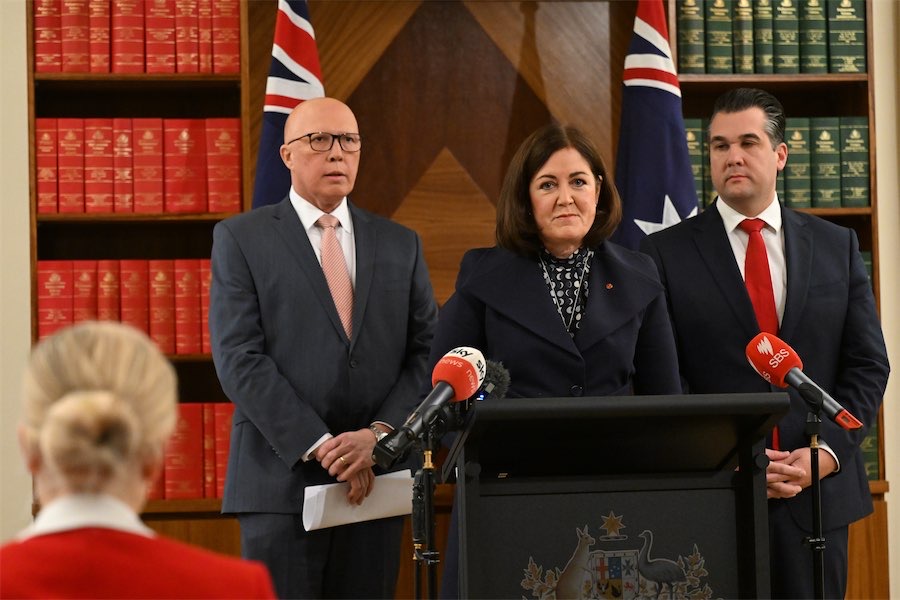
“It is critical for elected members to distinguish between a motion framed to be a strong opinion versus a much more serious issue such as misleading, incompetence, corruption or lack of integrity,” writes political columnist MICHAEL MOORE.
Independent MLA Fiona Carrick launched a scathing attack on Health Minister Rachel Stephen-Smith for ignoring a motion of the Assembly.

According to Ms Carrick, the Minister “confirmed that she will not extend the contract for the Salvation Army to operate the Burrangiri Respite Centre in Rivett, in defiance of a motion passed by the ACT Legislative Assembly on March 5”.
Does the minister ignore such a motion at her peril? The question is: is this matter a part of the responsibility of executive government?
Thanks to assurance from the cross benches of stable government, in such cases, the Assembly expresses an opinion rather than issues an order.
One of the key lessons that I learnt in my early days as an army officer, and one that has served me well throughout life, was “do not give an order you do not expect to be obeyed”.
It seems that this motion was expressing a strong opinion. As such – it should stand. However, if the issue was more serious, but would never be enforced – it should never have had the support of the Assembly.
The motion by Ms Carrick is on behalf of a group (or groups) in the community. All indications are that those supporting this motion consider it a serious community issue.
However, a strong opinion rather than an instruction was on the agenda as indicated by the vote passing without anyone calling for members to be counted.
Exposing the hypocrisy of the government was part of the issue. Ms Carrick argued “on the same day that Community Services Minister Suzanne Orr delivered a ministerial statement about the government’s commitment to supporting carers, Health Minister Rachel Stephen-Smith has let down those Canberrans and their carers who need short-term respite care by not extending the operations of the Burrangiri Respite Centre.”
When questioned in the Assembly about whether she had complied with the motion, Stephen-Smith’s first response was perfunctory: “No, I have not – or the Health directorate has not. I would not be the signatory anyway”.
She was then asked when she would extend the contract for the Salvation Army.
After noting the service had already been extended for 12 months, she attempted to change the subject.
“Were we to recommission the service, under our probity and procurement rules – and I am sure Ms Carrick takes sticking by procurement rules and upholding probity very seriously – we would, in fact, be required to go to market to test the service.”
She was not being asked about recommissioning – she was being asked about extending the service. Clearly, it was possible without probity issues – after all, the contract had already been extended for a year.
The minister’s reasoning was refurbishment of the facility (which was needed) would mean closure for a period.
“The decision was not whether to continue the service; the decision was whether to fund an alternative service. I have made the decision not to do that, because it would duplicate services that are already funded through Canberra Health Services”.
There is a precedent for the power of motions. In April 1994 there was a successful motion of no-confidence in Wayne Berry, who was the minister responsible for gaming.
The grounds were regarding “his deliberate and or reckless misleading of the Assembly concerning matters relating to the ACTTAB’s contract with VITAB Limited”. As a result of that motion, the minister was forced (albeit reluctantly) to resign.
Some referred to the issue as “minor”. Most of these commentaries focused on the VITAB issues and did not comprehend the seriousness of a minister misleading the Assembly. To allow misleading would disempower non-executive members and make a mockery of question time and accountability.
It is critical for elected members to distinguish between a motion framed to be a strong opinion versus a much more serious issue such as misleading, incompetence, corruption or lack of integrity.
Where the Assembly is simply expressing an opinion on a matter that is clearly within the purview of the executive, then it should be up to the minister to determine how seriously the motion should be taken and how it ought to be treated.
In the end, the power is with the Assembly. In 1994 it was clear that the minority Labor government was under threat should they have ignored the will of the Assembly. The Assembly exercised its power to see a minister removed from the cabinet. The recent motion was a strong view of the Assembly.
Michael Moore is a former member of the ACT Legislative Assembly and an independent minister for health. He has been a political columnist with CityNews since 2006.
Who can be trusted?
In a world of spin and confusion, there’s never been a more important time to support independent journalism in Canberra.
If you trust our work online and want to enforce the power of independent voices, I invite you to make a small contribution.
Every dollar of support is invested back into our journalism to help keep citynews.com.au strong and free.
Thank you,
Ian Meikle, editor





Leave a Reply